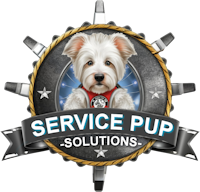
Search Engine Optimization (SEO) is a crucial part of digital marketing that focuses on increasing the visibility of a website or a web page in a search engine’s unpaid results—often referred to as “natural,” “organic,” or “earned” results. Here’s a detailed look at what it involves:
- Keyword Research: This is the process of identifying the words and phrases that people use in search engines. These are relevant to the content on your website. By understanding these keywords, you can optimize your content to align with the terms people are searching for, which increases your chances of being found.
- On-Page SEO: This involves optimizing individual web pages in order to rank higher and earn more relevant traffic in search engines. This includes optimizing your titles, headings, content, and images to include relevant keywords. It also involves ensuring that your site has a good structure for navigation and that each page is technically set up well (e.g., fast loading times, mobile-friendly design, etc.).
- Off-Page SEO: This focuses on activities outside of your website that can affect your rankings within search engine results pages. This primarily involves link building, which is the process of getting other reputable websites to link back to your site. These backlinks are essentially votes of confidence from other sites, showing that your content is valuable and reputable.
- Content Creation: High-quality, engaging content is foundational to SEO. Search engines favor content that is helpful, informative, and entertaining. Regularly updating your website with fresh, relevant content can boost your rankings and keep your audience engaged.
- Technical SEO: This refers to website and server optimizations that help search engine spiders crawl and index your site more effectively. Aspects like structured data, proper use of tags, and URL structure fall under this category. Ensuring your site is secure (using HTTPS) is also a part of technical SEO.
- Local SEO: For businesses with a physical location or serving a geographic area, local SEO helps promote their products and services to local customers at the exact time they’re looking for them online. This includes managing your business’s listings in places like Google My Business, optimizing for location-specific keywords, and gathering local reviews.
- SEO Analytics and Tools: Monitoring your SEO progress is essential. Tools like Google Analytics, Google Search Console, and others can help you track your website’s traffic, see how users interact with your site, and understand how your SEO efforts are translating into actual business outcomes.
SEO is a long-term strategy that can lead to substantial growth in organic traffic and improve the overall online presence of a business. It requires ongoing effort and adaptation to the evolving algorithms of search engines.
Learn how Digital Marketing and Affiliate Marketing can launch your Side Hustle or new career and boost your earnings. Click Here to find out more and start your journey today!
